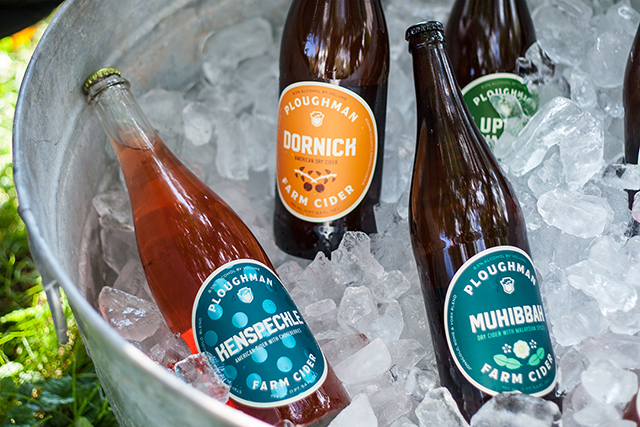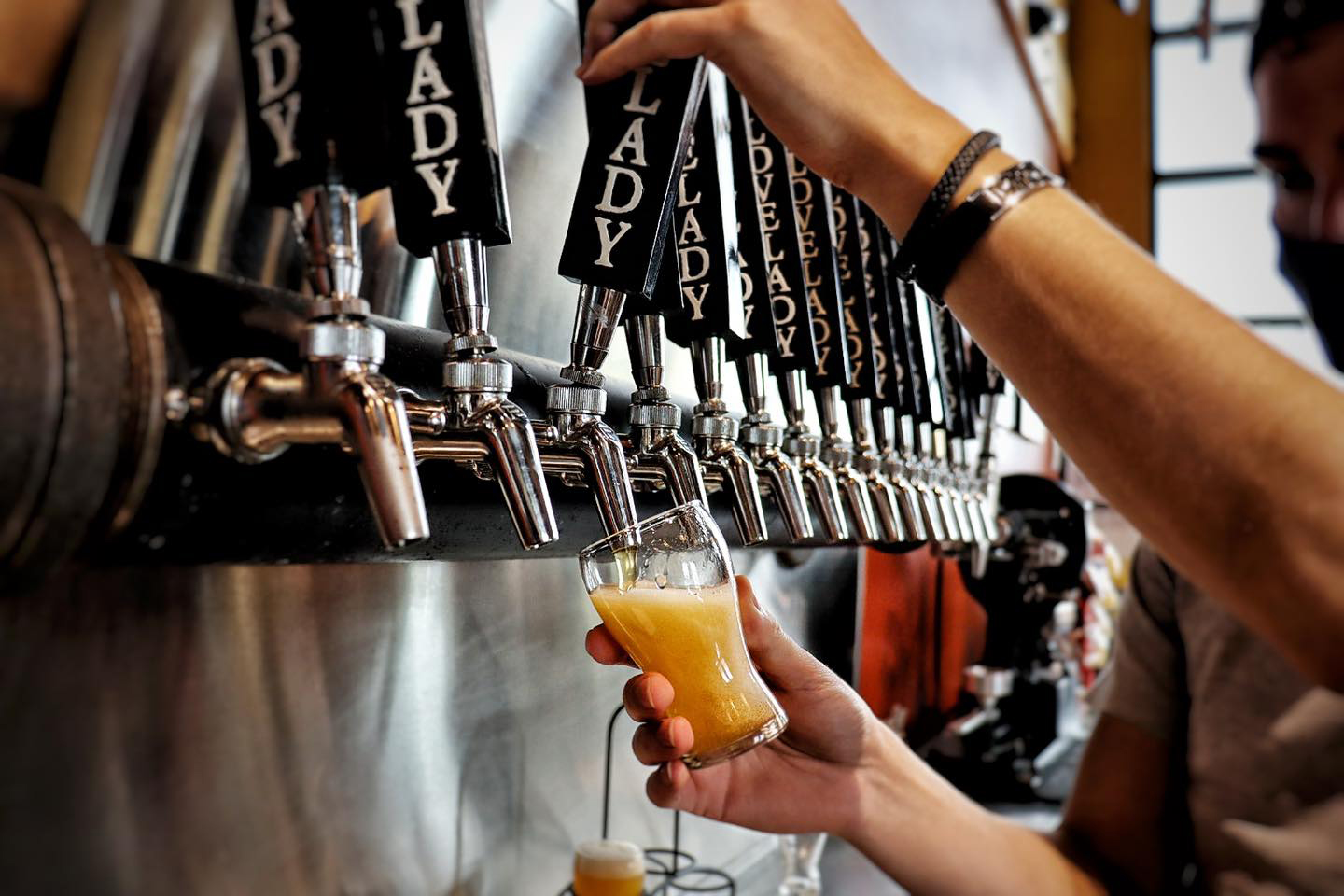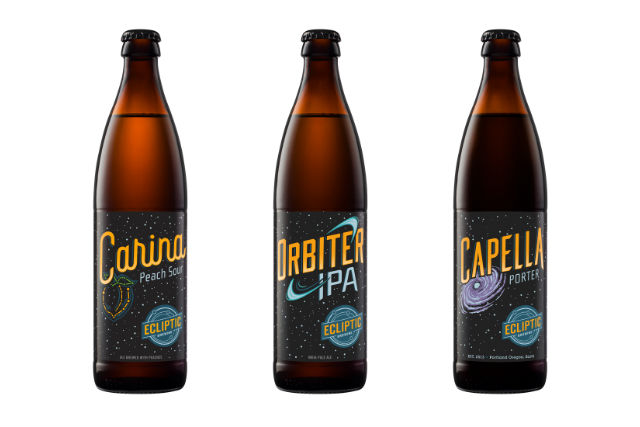
As many craft beverages are finding itself in cans versus bottles now, some cideries still prefer large format glass bottles as a way to showcase their labor.
“As a young company on a farmer’s budget, the first gate for packaging was determined by the capabilities of our mobile bottler,” explained Ben Wenk of Ploughman Cider. “And yes, pricing and elasticity were big considerations too.”
Wenk noted that one of the pitfalls for cider made such as Ploughman — which makes a full juice cider — is the temptation of “familiar beer packaging” and the tendency of ciders in that packaging being compared, in price, to beer.
“I don’t pretend that making beer is cheap, but water is more easily obtained than apple juice is and it makes up the full volume of our packaged product,” he pointed out.
So, for now, Ploughman packages in 500mL glass and 750mL glass, plus draft.
Fenceline Cider packs in 22-ounce and 750mL bottles, said co-owner Sam Perry.
“It’s the right bottle choice for us as producers but not right for a lot of our customers,” he said, indicating that cans may be the future for them.
“Right now we just can’t afford to grow the trees, harvest the fruit and make the cider at a price point that works in a can,” he said. “We are treating our cider more like wine than beer.”
Cider across the board has a packaging problem in Wenk’s opinion so he said he feels ‘liberated’ to try whatever version of bad packaging he feel is “right for us” at the time.
“Right now we’re putting our more unique apple blends in 750mL bottles and packaging ciders that we can scale up based on access to ingredients in 500mL bottles,” he said. “Is it a good idea? Who knows!? But, it’s where we’re at for the moment.”
Cans make Wenk nervous, he said. But it doesn’t mean there won’t be a day in the future when consumers can find Ploughman Cider in cans.
“But we like glass,” he said. “Ciders, by in large, are more acidic than beers which can, potentially, react with the aluminum in a can in ways that can compromise the liquid, by our estimation.”
Different alloys and linings are available for cans that would be more suitable but those are often hard to access for a cidery of Ploughman’s lower volume.
“There’s a reason that ciders have been served in bottles for as long as they have been — reliability and product stability,” he said. “The benefit of cans is obvious. It’s what people are preferring to buy at the moment. They’re less weight as well.
“However, we’re making the decision at this moment to ride it out with bottles because we don’t want to learn the hard way about what the shelf life is for an acidic cider in a standard aluminum beer can.”






Be the first to comment